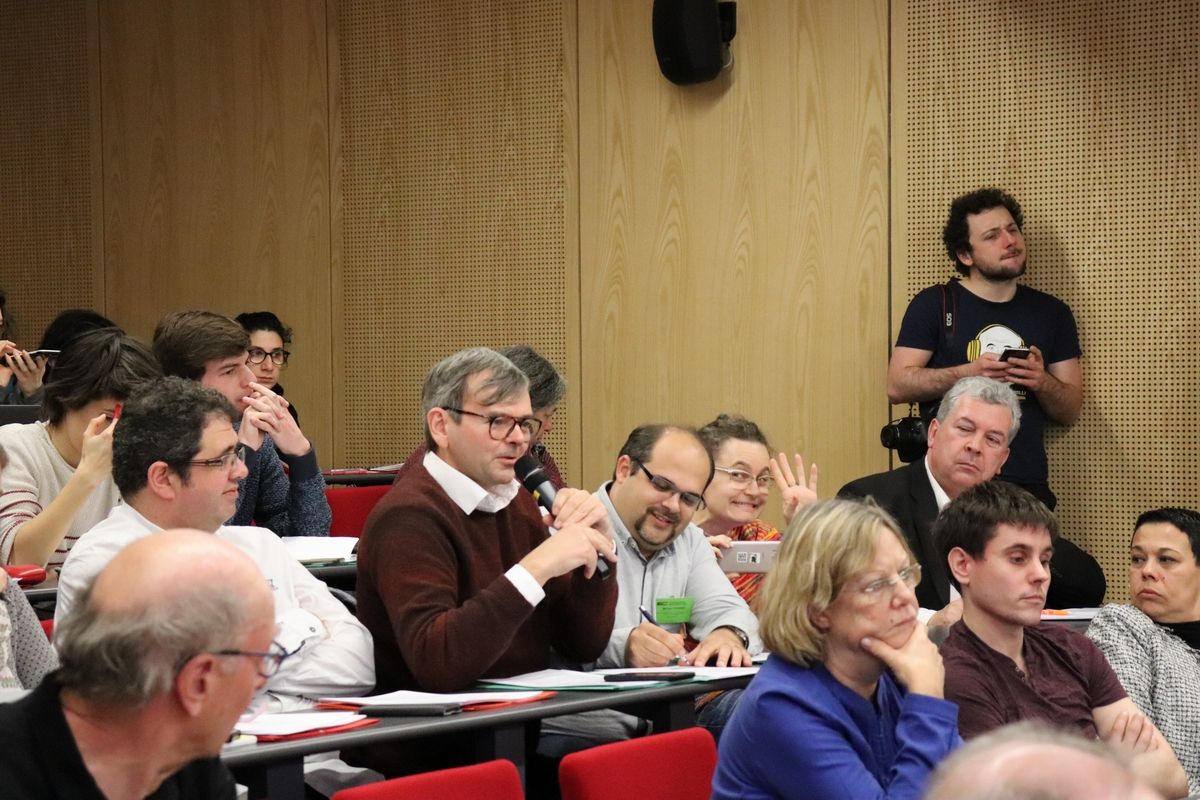
The UE’s democratic deficit : What should be the role of political parties ?
Recently, DSC Lyon 1 was invited to participate in a seminar hosted by the Union of European Federalists, with this enticing title. “How can political parties respond to the increasing need for a public debate on the European project ? What could be their role in the creation of European civil society ? How should they organise themselves on the European level ?” Clearly, this was an event where we had important things to contribute !
The UEF itself is a benign organisation, with aims which are broadly compatible with those of DiEM25 on the institutional level. Its membership is all over the political spectrum, from DiEM25 to centre right. But in practice, it seems to be quite closely aligned with the existing institutions.
So perhaps unsurprisingly, the panel was dominated by representatives of groups represented in the UE parliament : European People’s Party (EPP), Socialists and Democrats (S&D), Liberals (ALDE), Greens. The contributions of each panelist underlined the fact that these “european parties” are, in general, nothing more than federations of national parties, often lacking in ideological coherence (the EPP representative, Françoise Grossetête, amusingly defended the membership of Fidesz in her group, saying that when a family member misbehaves, you don’t throw them out, you try to help them !) The representative of the European Green Party, Gwendoline Delbos-Corfield, described in detail how increasingly difficult it is to get member parties to align on policy matters on the European level.
Jo Leinen (SPD/S&D) ruefully admitted that the EU is still far from having defined a status for true transnational European parties. I spoke up on this issue, having been involved in the thorny question of defining statutes for DiEM25 in France ; as all of you who have worked on the question in your own country will realise, there is no legal definition on the European level that we can attach ourselves to, unless we have members which are existing national political parties. The rules attached to registering a European political party are designed to maintain a closed club : it is explicitly stated that such a party is a “political alliance” of parties already represented at a national or regional level. All of this flies in the face of the professed objective of fostering European citizenship and political involvement… But we already knew that !
Jacques Terrenoire spoke for DiEM25, outlining our inherently transnational approach and our objectives of radical institutional reform. This was generally very well received, in particular by the representative from Macron’s party, En Marche (we refrained from speaking of our political program, that would have spoiled the concensus !)
It was a successful outing for DiEM25, raising our political profile. It also provided the occasion to meet members of Benoît Hamon’s “Generation.s” movement who were present at the event, and to confirm with pleasure that we are indeed on the same political line !
Alistair Connor and Jacques Terrenoire are members of DSC Lyon1
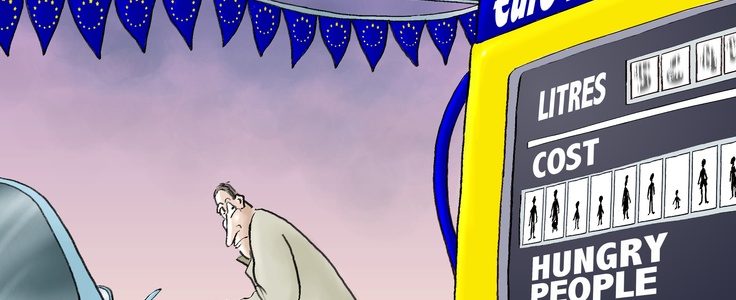
Biofuels should fight climate change, not serve capital
Sustainability means a healthy balance in producing goods without over-farming the environment. Clearly, our societies’ dependencies on petroleum are not sustainable: the rate of natural production is practically zero when compared to the rate at which we pump it out of the ground — not to mention the catastrophic effects on the environment felt across the globe.
One familiar alternative is fuel from biomass, or biofuel. Although carbon biofuels do little to reduce overall levels of carbon emissions, policies that promote their use can drive the shift away carbon and improve sustainability.
But is the EU willing to do what it takes?
The year 2020 is set as a milestone: by then, 10% of transport fuel should come from renewable sources, including biofuels. Ideally, this should motivate fuel companies to fund research for environment-friendly alternatives. But this goal was set in 2008, at the peak of biofuel industry. Since then, it has been shown, innovation in biofuels has slowed to a crawl, and the usual suspects in the petroleum industry are celebrating.
In the energy sector, the heart of capitalism continues to beat: concentrating power and profit in a handful of multinationals. Meanwhile, our democracy continues to fail: with controversial subsidies, undemocratic political decisions and very little progress in addressing the actual long-term problems on policy implementation.
At DiEM25, we fight for large-scale investments in green technologies not only to boost European technologies, but also to fight climate change. And we demand transparency and democracy in addressing these challenges: Decision-making on this crucial issue should be open to the public and be driven by sound science, not by profit. Our planet cannot stand another decade of extractive profiteering under the cover of biofuels and renewable energy. Become a DiEM25 member and join our thematic collectives to take our fight to the European establishment.
Aris is a member and volunteer of the DiEM25 movement.
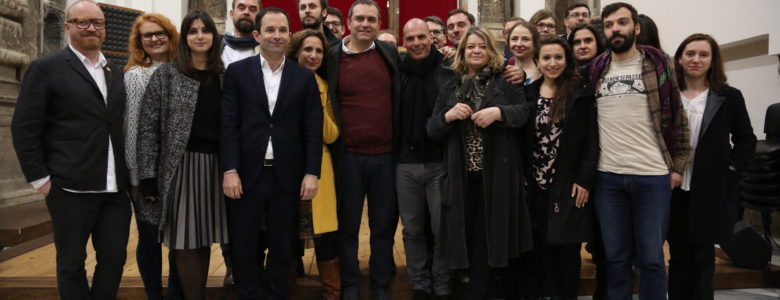
Europe’s pioneer transnational list: Council Meeting Conclusions
On March 10 in Naples, for the first time ever, national, regional and municipal political forces from across the continent assembled with a view to bring about change and reconstruct the European Union – bottom-up, transnationally. Here are the complete set of agreements reached during that historic day’s discussions:
Naples, March 10, 2018
1st meeting of the Provisional Council
Participants:
DiEM25 (EU); DemA (Italy); Génération.s (France); LIVRE (Portugal); Razem (Poland); Alternativet (Denmark); MeRA25 (Greece); Bündnis DiEM25 (Germany)
Observers:
European Green Party (EU); European Party of the Left (EU); PCF (France); Levica (Slovenia); Nova Ljevica & Zagreb je naš (Croatia), DiB (Germany); Demos (Romania)
Co-chairs:
Agnieszka Dziemianowicz-Bąk and Lorenzo Marsili
***
AGREED CONCLUSIONS
- Approval of the Open Call
The Open Call was approved. All partners commit to its dissemination via their own communication and press channels. The Call aims to extend membership of our Transnational List, while promoting mutually beneficial rapport, cooperation, and alliance with other transnational parties and transnational lists.
- Formation of a Provisional Joint Council
The Provisional Council was officially established.
Membership of the Council is composed of two (2) representatives from each political movement on the Transnational List. In the case of national coalitions, each member party of the coalition has one (1) representative. In the case of transnational parties with affiliated national parties, each national party has one (1) representative.
From Autumn 2018 (exact date TBC), it has been agreed to include up to 20% of Council members (at the time of approval) via a random draw (sortition) among all member of all participating political movements, with full gender parity.
This arrangement is valid only through the 2019 European elections, following which the Council will be democratically elected, with stipulations for gender equality, diversity and regional representation, and with additional election of members via sortition.
The Council’s mandate is as follow:
- To decide on our list’s pan-European name.
- To oversee the process of developing the common Agenda, including the country-by-country program.
- To coordinate joint communication and electoral campaign strategy.
- To build alliances and partnerships with other transnational parties and lists.
- To approve the addition of new allies and Council members, as well as the expulsion of existing ones.
- To define the Spitzenkandidat process.
- To validate electoral lists and transnational cross-listing.
- To draft an Ethical Code.
The Council aims to take decision by consensus. When this is not possible, a vote may be called with a required qualified majority of two-thirds (2/3) Council members.
The Council will have an Ethical Code binding on all its members and candidates. A draft of the Ethical Code has been discussed, and a final version will be approved at next Council meeting.
Conclusions of Council meetings, as well as abridged minutes, are to be presented on the websites of all participating political movements.
Ahead of the next Council meetings, members will reach a consensus on how best to proceed with (i) registration as a recognized European movement fielding a candidate for the presidency of the European Commission, and (ii) establishment of a foundation. Registration must be completed by May 2018.
- Establishment of the Economic, Social, Cultural and Political Agenda
Our common political program will be titled “A New Deal for Europe” and structured around a preamble, a policy overview, country-by-country policies, and annexes with full policy information. Topics of specific chapters are to be decided by the Council at the next meeting in April. A draft structure developed in Naples is as follows:
- Preamble
- Pan-European Green New Deal (abridged)
- A New Deal for Our Democracies: Municipalism and autonomy, rule of law, and Constitutional Assembly Process
- A New Deal for Migrants and Refugees
- A New Deal for Legality: Organized crime and tax heavens
- A New Deal for Women
- A Post-Capitalist New Deal
- A New Deal for Europe’s foreign policy
- Country-by-Country policies
- Annexes with full details of all proposals
The preamble will be drafted ahead of the next Council meeting. All partners will provide a small number of bullet points to include in the draft preamble, and a team of no more than two or three people will write the first draft for consultation to ensure an attractive prose.
The overview of the political platform will be developed by May 2018 and approved by all verified members of all political movements represented on the Council.
The country-by-country agenda and full annexes will be prepared by Autumn 2018.
The platform will remain a living document (“Linux code”) open to further additions ahead of the 2019 elections.
The creation of an Agenda Subgroup to guide this process has been agreed.
- Campaign and Member Engagement
The public launch of our campaign has been agreed for June 2018. It was noted that Génération.s proposes a Paris launch on July 2, and Razem suggests holding an event in Warsaw on June 23. Dates for launch events will have to be fixed within the month of March.
The Council will continue thinking of innovative solutions for a genuine transnational campaign. Among the ideas discussed in Napoli were those of a shadow government and a transnational caravan.
Our transnational list aims to be democratic and participatory. In order to facilitate member engagement, a series of data, IT, and privacy questions will need to be solved.
- Selection of Candidate and Name for Transnational Party List
Our Council will call for nominations to the post of Candidate for the Presidency of the European Commission. All members of all political movements represented on the Council are eligible to stand, provided they gather a minimum amount of endorsements (to be specified). The Council will then validate candidatures and organise transnational elections for Autumn 2018 among all verified members of all participating political movements.
Our Council will need to choose a name for our Transnational List by the next Council meeting.
- Follow-up
A press release has been issued.
The next Council meeting will be organized before the end of April. A date should be fixed ASAP. It was noted that LIVRE has suggested April 25 in Lisbon. [UPDATE: date fixed at April 26, in Lisbon).
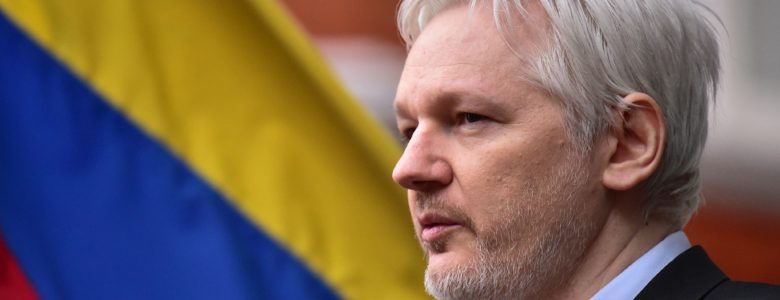
Brian Eno & Yanis Varoufakis: Restore Julian Assange’s access to visitors and the outside world!
Statement by DiEM25’s Brian Eno and Yanis Varoufakis
It is with great concern that we heard that Julian Assange has lost access to the internet and the right to receive visitors at the Ecuadorian London Embassy. Only extraordinary pressure from the US and the Spanish governments can explain why Ecuador’s authorities should have taken such appalling steps in isolating Julian.
Only recently the government of Ecuador granted Julian citizenship and a diplomatic passport, in a bid to allow him safe passage from London. The UK government, under heavy pressure from the US government, refused to exploit this opportunity to end Julian’s detention – even after the Swedish authorities announced that no charges were, or would be, laid against him. Now, it seems that the Ecuadorian government that has been ‘leaned’ on mercilessly not only to stop attempting to provide Julian with a diplomatic route to safety but to drive him out of their London Embassy as well. In addition to US pressure, the Spanish government is also using its leverage over Ecuador to silence Julian’s criticisms of Madrid’s imprisonment of Catalan politicians and, in particular, of the arrest of Catalonia’s former premier in Germany.
Clearly, Ecuador’s government has been subjected to bullying over its decision to grant Julian asylum, support and, ultimately, diplomatic status. Naturally, Quito cannot admit that it is buckling under that pressure and it argues, in public, that Julian’s tweets over Catalonia are responsible for the decision to isolate him. Of course this is utterly unbelievable. Julian is now a citizen of Ecuador and as such enjoys the full protection of his freedom of expression guaranteed by the Constitution of Ecuador. Additionally, the only reason Julian is holed up in Ecuador’s London Embassy – and why Ecuador gave him asylum in the first place – is precisely because he empowered whistleblowers’ freedom of expression and defended our right to know the truth about practices of the US and other Western powers that the latter found ‘inconvenient’ once exposed to the light of day.
A world in which whistleblowers are hounded, small countries are forced to violate their cherished principles, and politicians are jailed for pursuing peacefully their political agenda is a deeply troubled world – a world at odds with the one the liberal establishment in Europe and the United States proclaimed as its artifact since the end of the Cold War.
With these thoughts in mind we call upon all citizens of good conscience to send a message to the Ecuadorian authorities asking that Julian’s access to the outside world be restored and another, more pertinent one, to the British authorities to end Julian’s detention.
SIGN THE PETITION TO END JULIAN’S ISOLATION IMMEDIATELY!
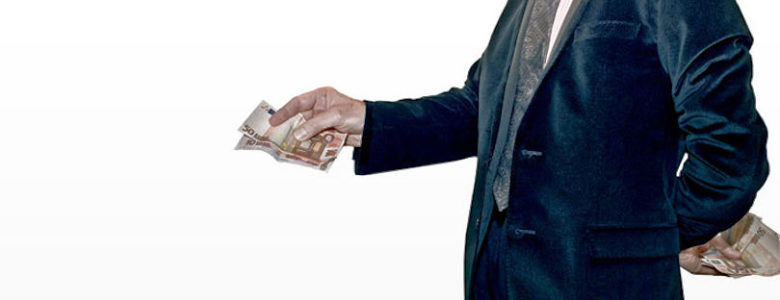
EU keeps increasing the opportunities for tax evasion
EU member states have agreed to fight tax evasion by forcing tax intermediaries like accountants and lawyers to report their illegal activities.
Sounds feasible to you? We will have to wait until 2020 to know fore sure: the agreement won’t come into effect until three years after it was initially proposed.
Needless to say, three years is a lot of time. It gives any big for-profit entity sufficient time to move their money around, establish shell companies, and evade the regulators.
But even if tax evasion stopped tomorrow — and all firms were properly taxed — European citizens would still not know where the money goes. The failure of transparency inside EU institutions is not only undemocratic — it also hurts the legitimacy of the EU’s quest to crack down on tax evaders.
Europeans urgently need transparent, efficient, and EU-wide mechanisms to fight tax evasion. But they also need faith that their taxes are distributed fairly across the continent, whether through a Universal Basic Dividend or through supporting education. For this, we collectively develop a progressive agenda for Europe, a European New Deal!
Aris is a member and volunteer of the DiEM25 movement.
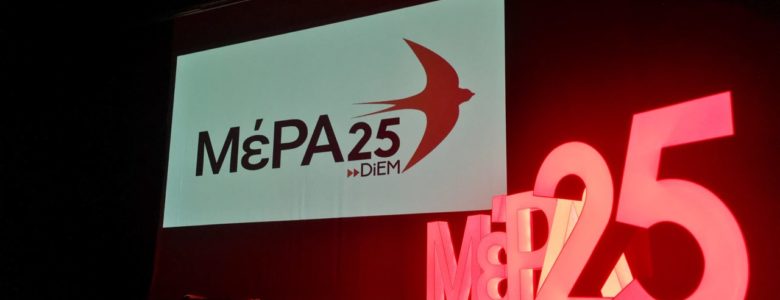
Hope is back for Greece: DiEM25 launches new political party
We had a full house on Monday for the launch in Athens of the MeRA25 party, DiEM25’s electoral wing in Greece.
The evening started with a short, poignant theatre piece by the students of Central Saint Martins in London. We then moved into a series of short speeches from DiEM25 and MeRA25 members.
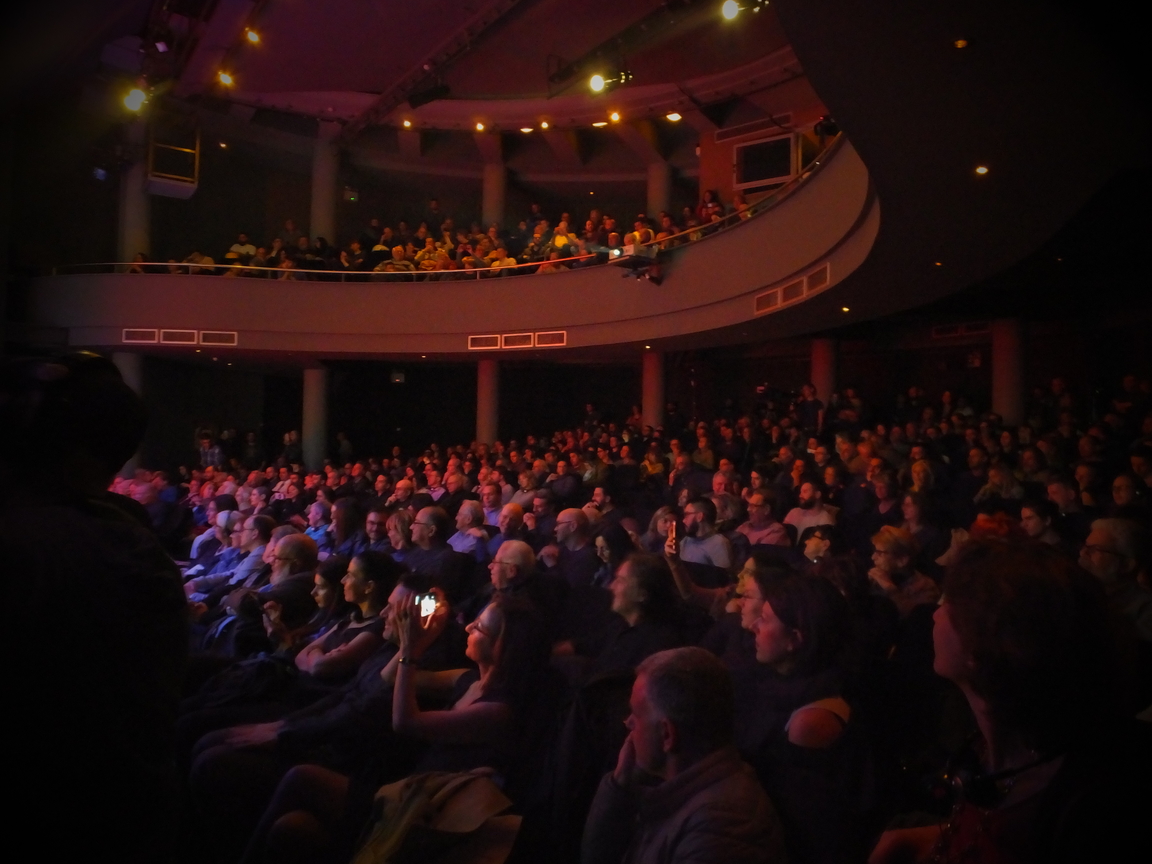
The Greek Spring of 2015 featured heavily in the speeches, alongside MeRA25’s new manifesto and programme to end Greece’s status as a debt colony.
Speakers included Yannis Charalabakis, the leading Greek climate activist, Gerasimos Lyberatos, city councilor of the Athenian suburb of Halandri and professor at the National Technical University of Athens, Greek composer Dimos Moutsis (who composed the MeRA25 anthem!), actor Kleon Grigoriadis (now part of MeRA25’s political secretariat), as well as various members of DiEM25’s coordinating collective and advisory panel.
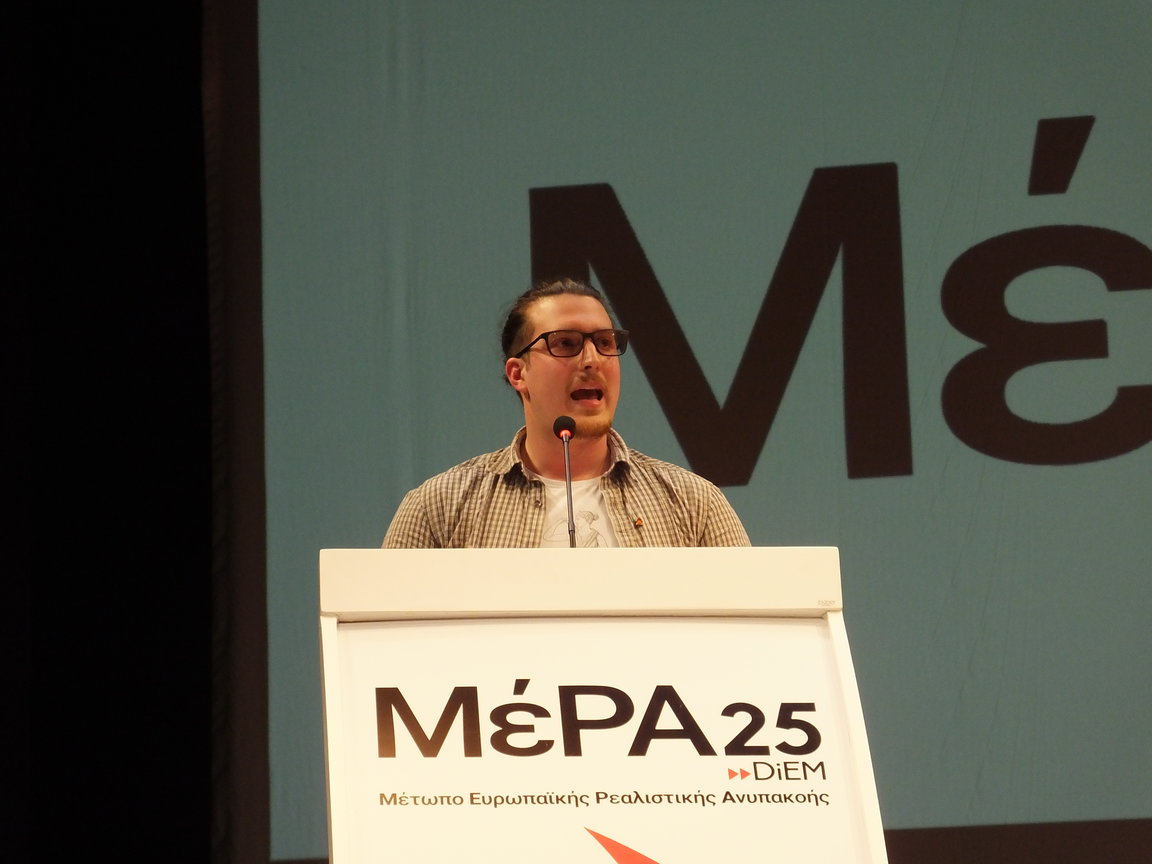
Erik Edman, DiEM25 Coordinating Collective member, said: “Greece in 2015 was not the end of hope, but the beginning.”
Rosemary Bechler, editor of OpenDemocracy and member of DiEM25’s Coordinating Collective, quoted Lord Byron. Looking out onto the crowd in the packed house, she said “I would like to think that Byron would smile at what is happening here tonight”.
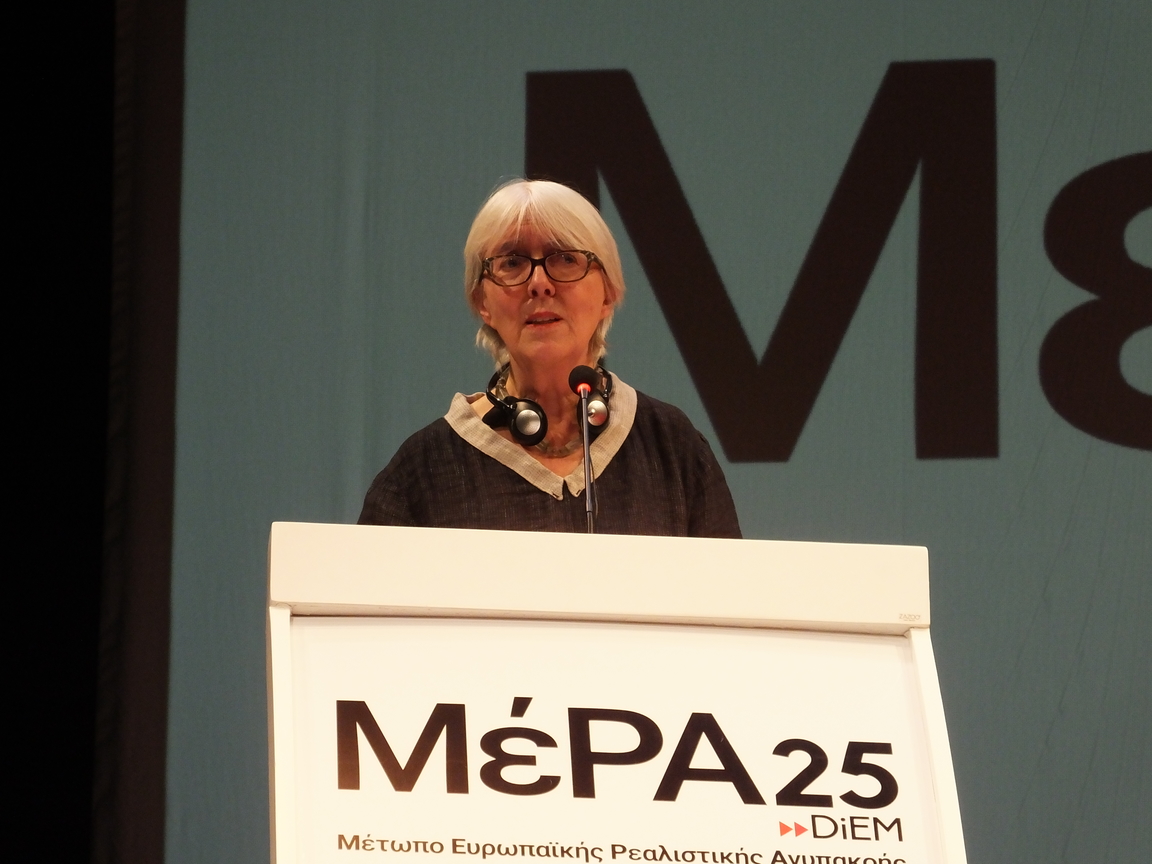
Fotini Bakadima, DiEM25’s Secretarial Coordinator, explained how MeRA25 is based on European transnationalism, where members across Europe can contribute to policy-making. She called on the audience to assist the new party in drafting policy: “Help us, all of you, to enrich our proposals!”
Slavoj Žižek, philosopher and DiEM25 adviser, said: “What happened to Greece represents the murder of hope. DiEM25 in Europe and MeRA25 is our only hope”. Noam Chomsky, DiEM25 Coordinating Collective member, added: “The inauguration of MeRA25 is an inspiration to others and a beacon of hope in a troubled world.
Lorenzo Marsili, DiEM25 Coordinating Collective member: “In 2015, the Greek people taught Europe a lesson in democracy. But Europeans watched passively as Greece was crushed. We are here to remind you all that this will never happen again!”
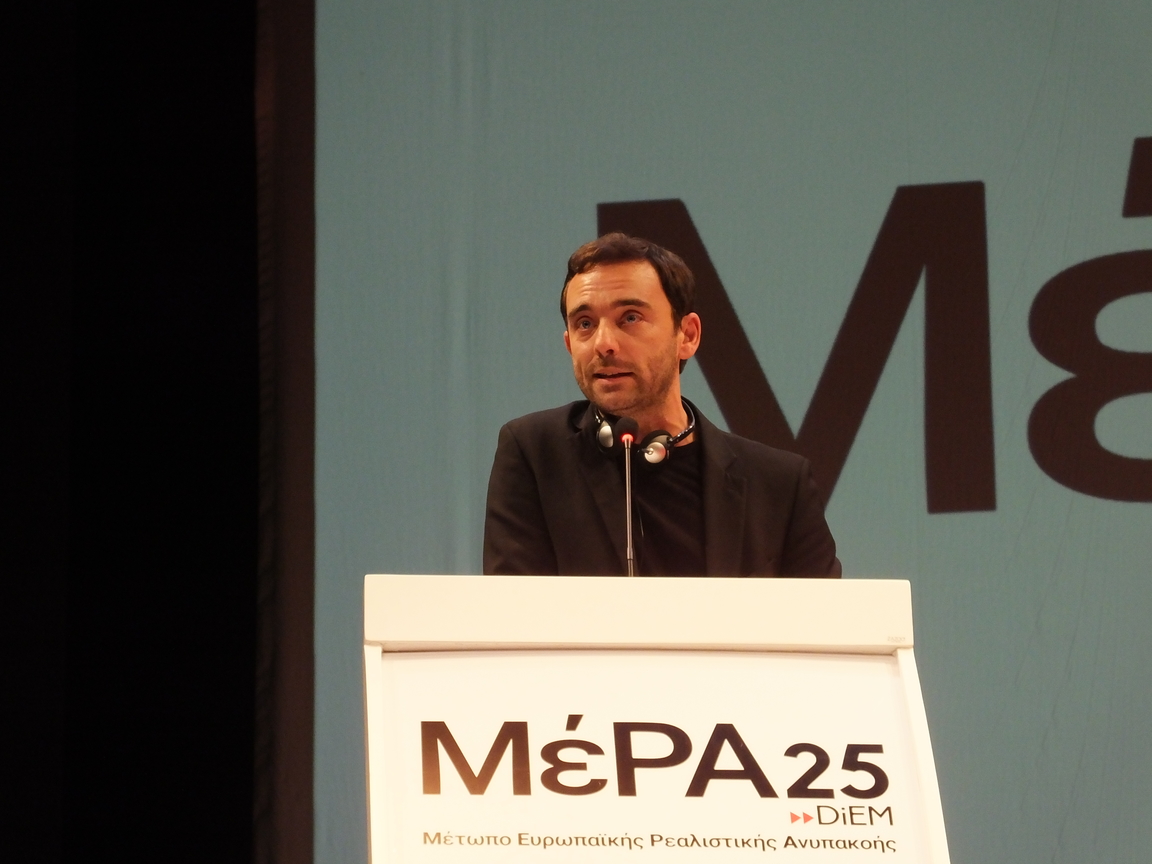
Musician Brian Eno, also part of DiEM25’s Coordinating Collective, added “Democracy is in danger in Europe, and it’s up to the Greek people to defend it!”
The evening also showcased some of DiEM25 and MeRA25’s political partners. Aurore Lalucq of the French progressive movement Generation-s, said: “We and [Generation-S leader and former French presidential candidate] Benoit Hamon will be with you for every battle.” Hamon welcomed the birth of MeRA25, saying: “Hope is back!”
The audience were then treated to a concert by Greek folk legend Psarantonis.
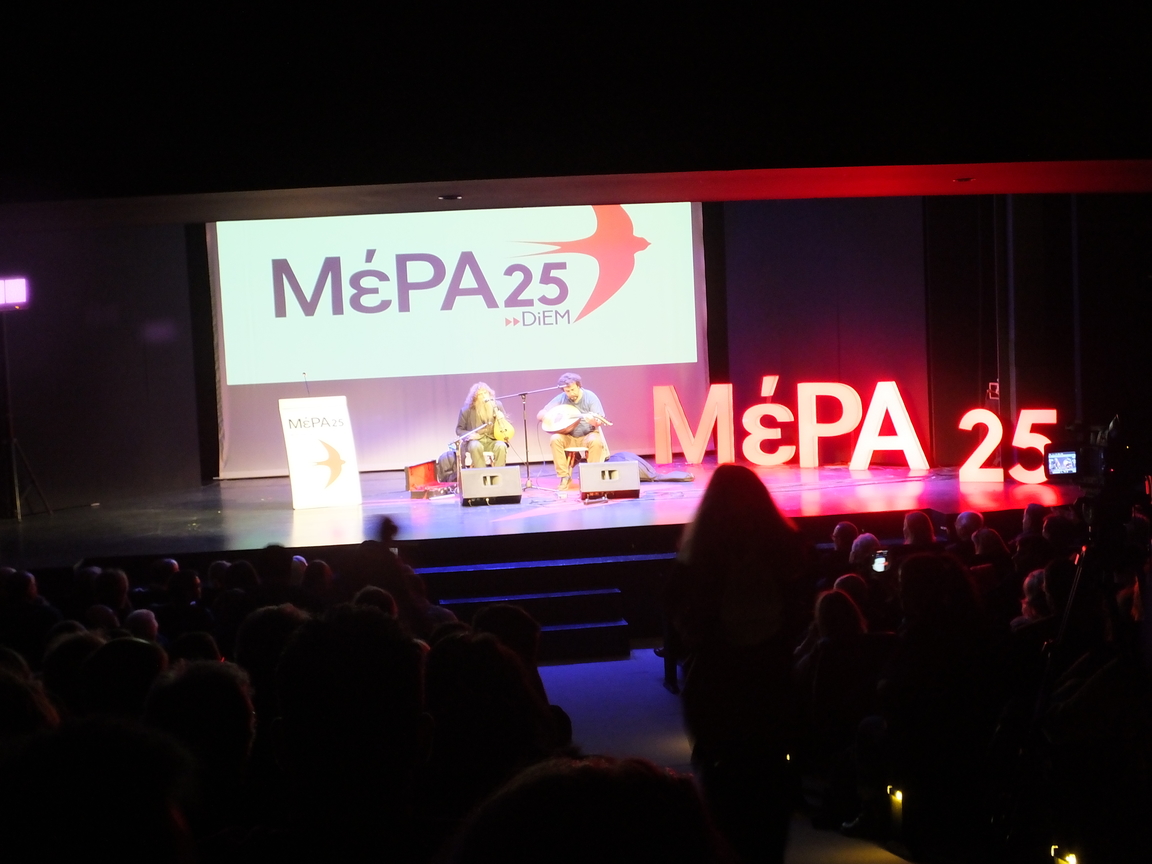
Finally, Yanis Varoufakis took the stage.
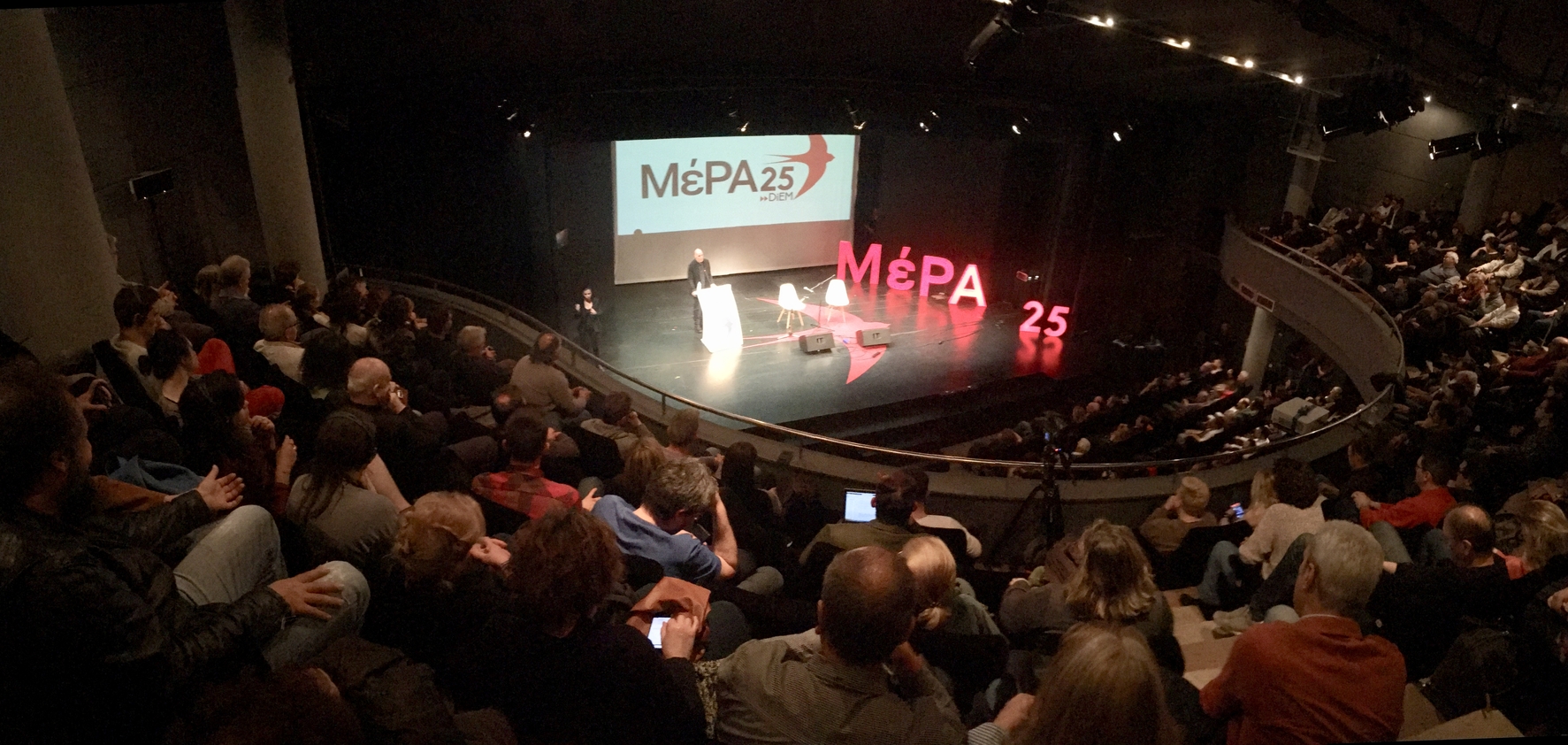
Blasting Syriza’s broken promises in 2015, Yanis said: “Nothing threatens a country more than the feeling that there is no alternative to the course that harms them. This is why we founded MeRA25”.
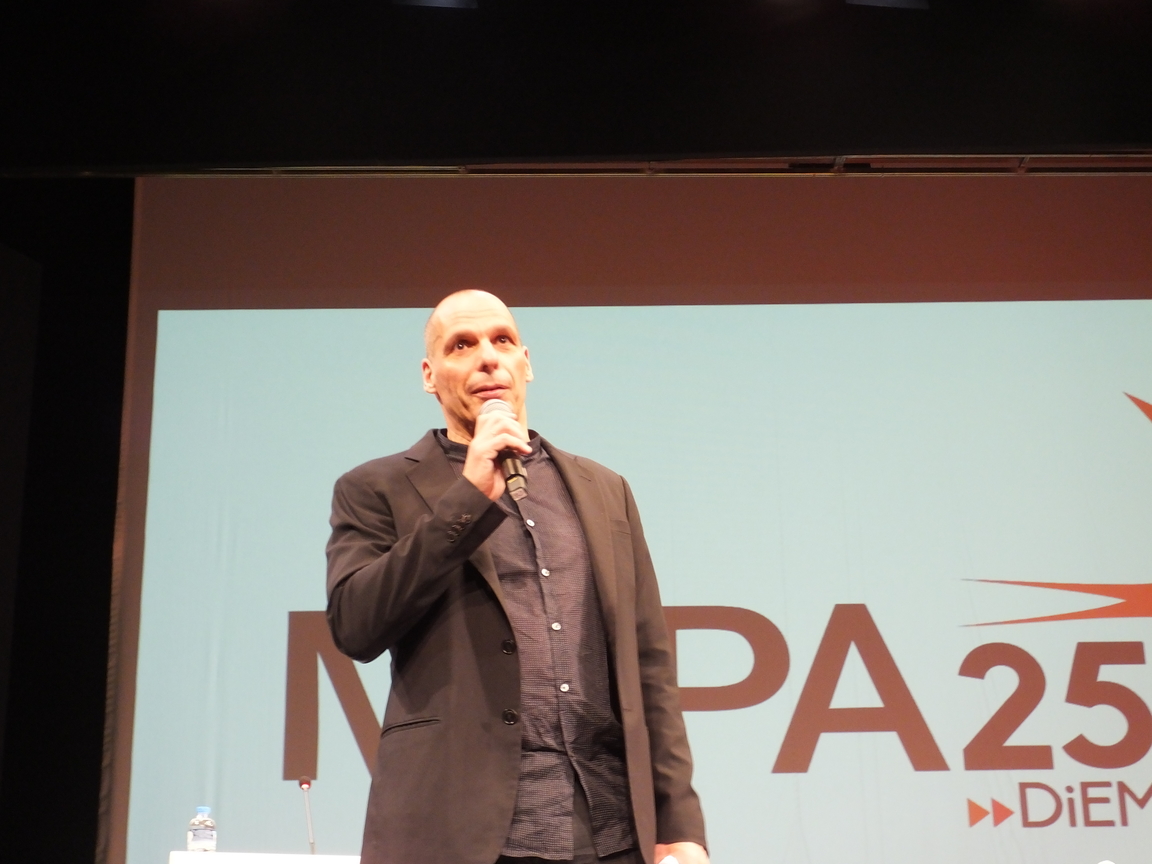
He went on to detail the new party’s policy proposals – the Greek New Deal, and ended with a call for people to join MeRA25. “We must prove that we can bring hope back,” said Yanis.
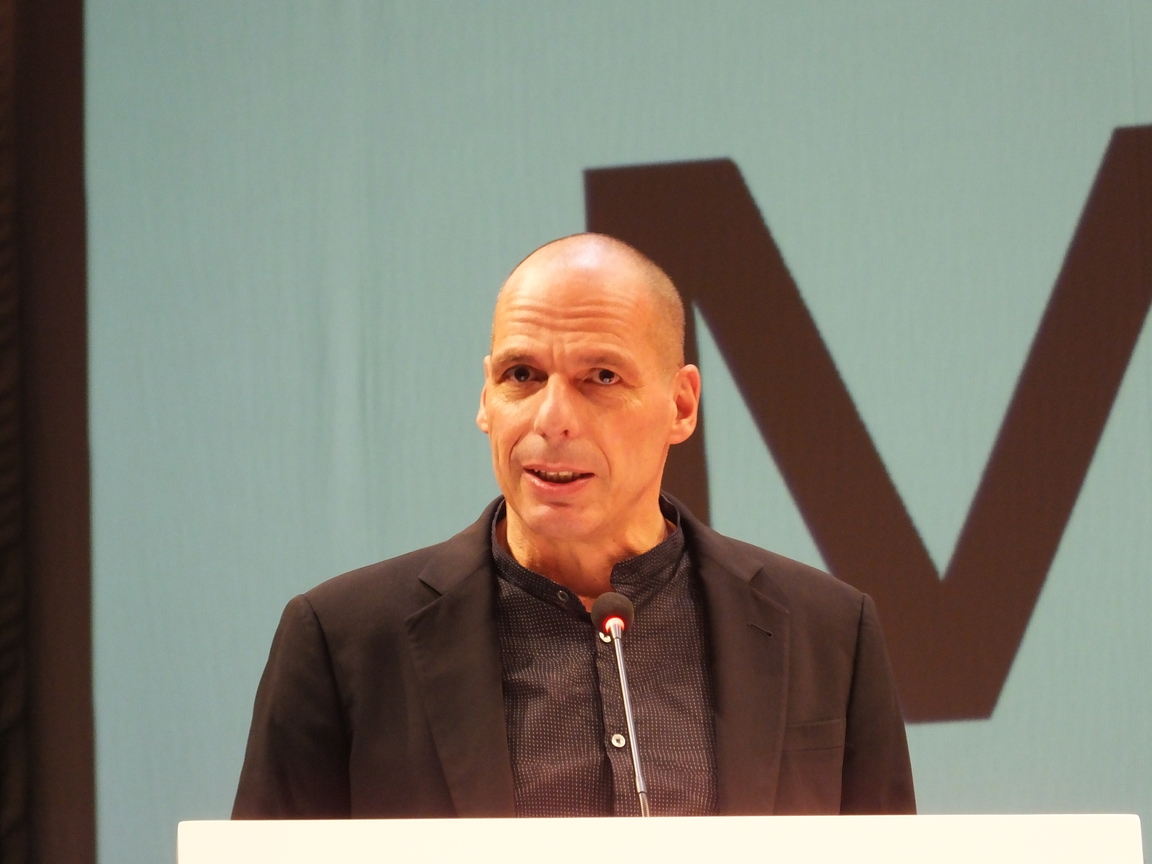
“We start tomorrow morning!”
Coverage
The Guardian: Greek ex-minister Yanis Varoufakis launches political party
France24: Greece’s maverick ex-minister Varoufakis launches party
The Times: Varoufakis launches new democracy party
Greek Reporter: Varoufakis Launches New Party in Athens
El Diário: Varoufakis vuelve a la política griega decidido a dar nuevamente guerra a la troika
Reuters: Greece’s Varoufakis promises to end debt bondage with new party
UK Business Insider: Greece ex-finance minister Varoufakis launches new party
Huffington Post Greece: Επτά σημεία του πολιτικού προγράμματος του ΜέΡΑ25 παρουσίασε ο Γ. Βαρουφάκης
Newsbeast: Βαρουφάκης: Είμαστε μέσα στην Ευρώπη, αλλά εναντίον αυτής της Ευρώπης
Kathimerini: Ο Γιάνης Βαρουφάκης για ελληνοτουρκικά και Σκοπιανό
Euronews: Πρεμιέρα για τη «Μέρα» του Γιάνη Βαρουφάκη
Naftemporiki: «Γραμματέας του DiEM25» ο Γ. Βαρουφάκης
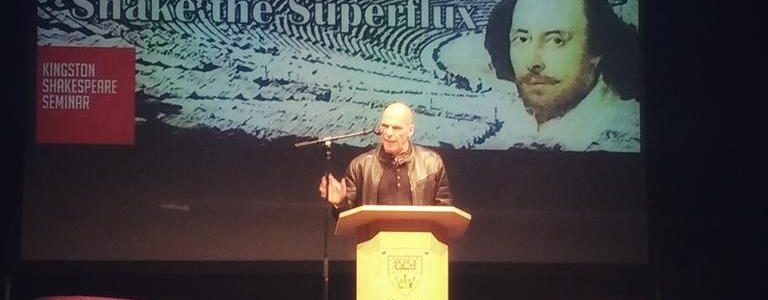
The madness and conflict of Shakespeare's characters can humanise economics
This March, a committed Europeanist but outspoken critic of the European Union, Varoufakis rose to explore how the complexities and contradictions of the Bard’s characters have shaped his own take on economics, as he delivered the sixth annual lecture for Kingston Shakespeare Seminar, a partnership between the university and the Rose Theatre.
Deriving key concepts from ‘praxis’ to ‘indeterminacy’ from the Bard’s characters and plots, “To a very large extent my own understanding of economics has been influenced by the inability of economists to capture what matters in human nature,” Varoufakis said.
“The language and mindset of economists is so dry. Every individual is depicted as an automaton, robot-like and lacking in emotion. And then you turn to Shakespeare – and every single character is like a republic of madness and conflict.”
Varoufakis served as Minister of Finance in the Greek government from January to July 2015, at the height of the country’s economic crisis. Famous for his negotiations with the European Union and the International Monetary Fund during bailout talks, he described what unfolded in Greece as a Shakespearean tragedy. Having failed to secure what he felt was a fair deal for his country, he fell on his sword, resigning from the government the morning after a national referendum supported his position but was ultimately ignored as the Greek Government accepted the bailout.
Speaking to a packed audience at the Rose Theatre, Varoufakis explained how the Bard’s work had much to teach us about politics on the international stage.
“Shakespeare’s plays shine a brilliant light on the established powers’ desperate attempts to avoid ethical accountability. They insist that ethics is for wimps: the strong do as they will and the weak suffer as they must.”
A mathematically trained economist and thinker with a deep appreciation of arts and culture, Varoufakis peppers references to the works of Shakespeare throughout his writing and speeches. He reported that observing the European Union was like watching Othello, compared German Chancellor Angela Merkel to Macbeth and enlivens his writing with Shakespearean quotations like King Lear’s cry to ‘shake the superflux’ of wealth – the title of his lecture at the Rose Theatre. Speaking ahead of the event, he hinted at the strong influence the artistic world has had on him throughout his life.
“I grew up in a country that has its own drama tradition – the ancient Greek tradition – but where Shakespeare was always appreciated as an extension of this tradition. The first time I read Shakespeare was in Greek, the first time I saw his plays was in Greece as a young teenager,” Varoufakis said.
“Yet training as an economist I felt I was straddling two worlds – my career was in economics, but my heart was with the Shakespearean depiction of humanity. I became fascinated by this juxtaposition – on the one hand the simpletons inhabiting the works of formative economic thinkers such as Adam Smith and on the other the extremely complex model of men and women in Shakespeare.”
Born in Athens in 1961, Varoufakis moved to England at 17 to study economics. After arriving in the country he bought himself a copy of the complete works of William Shakespeare to improve his English and began to enjoy trips to see the Royal Shakepeare Company. During this time he became a fan of the work of Sir Peter Hall – former director of the RSC and founding director of Kingston’s Rose Theatre.
Kingston University’s Peter Hall Professor of Shakespeare Studies Richard Wilson said it was this connection that persuaded Varoufakis to deliver the institution’s annual Shakespeare lecture at the Rose.
“Peter Hall was one of the world’s greatest directors. He believed in the concept of bringing the arts to the people – something that very much chimes with the way Yanis works,” Professor Wilson said. “Yanis has a popstar following and is very charismatic – he brings economics and politics to new audiences. He’s also an example to young people of how ideas can shape the world – a true model of what a public intellectual should be.”
With a note of self-deprecation, Varoufakis said he did warn Professor Wilson that he was perhaps not the most qualified person to deliver a lecture on Shakespeare.
“Richard assured me that was what he wanted – somebody who is not a Shakespeare scholar to come and explain how the Bard’s work has affected his thinking. Well, the blame is entirely on Richard for the result – but it is such a splendid invitation, I couldn’t possibly refuse.”
Article originally published by openDemocracy.

DiEM25 to become political contender in Greece
Last week was historic. We set into motion the first-ever transnational political list to contest elections in Europe.
Since then, messages of support from DiEM25 members have flooded our inboxes! And warning shots have been fired by the establishment’s politicos and their media trolls. They are getting worried. And they should.
Our strategy in the months ahead is two-fold:
- Our Movement: We will continue to grow and strengthen our movement so that we can raise awareness in every corner of our Union, expand our network of activists and volunteers, and keep the pressure on the EU establishment
- Our Electoral Wing: We will continue to build a progressive, transnational political force that can support and elect candidates who are neither chosen nor funded by the status quo, and who will give real political weight to our policies
If you are in Athens, or can take a trip there, please join us as we continue to make history on March 26 when we’ll launch MeRA25, DiEM25’s electoral wing in Greece.
Here’s what will be happening on Monday, March 26 in Athens:
- 10.00 – 11.30 Press conference
- 12.00 – 13.30 Grassroots spontaneous discussions
ROUNDTABLES
- 13.30 – 14.30 Roundtable on MeRA25’s Health and Education priorities
- 14.30 – 15.30 Roundtable on Environmental Policy and Local Government Action
- 15.30 – 17.00 Roundtable on MeRA25’s Economic and Social Policy Framework (Greek New Deal)
- 17.00 – 18.30 Roundtable on the links between MeRA25 and DiEM25, and DiEM25’s participation in the European Parliament Elections
EVENING EVENT
- 18.30 – 20.00 Short videos and speeches from MeRA25 and DiEM25 members
- 20.00 – 21.00 Speech by Yanis Varoufakis and closing of the event
If you cannot make it, please continue to spread the news about our movement, contact your nearest local group to find out ways to lend a hand, and make a contribution so we can keep on.
From the moment that we launch MeRA25, we will need to empower our Greek activists to drive MeRA25’s message and programme across the country. We need to mobilize, recruit and train volunteers from Sparta to Kavala, from Crete to Cephalonia. And we need the backing of the entire DiEM25 family! We must redouble our efforts against the media blackouts and the oligarchs’ attacks in Greece: ground-zero of the Eurocrisis.
Our members continued support is critically important to our grassroots, and to showing the Establishment our resolve: that DiEM25 is a force to be reckoned with. That they are right to be worried about us.
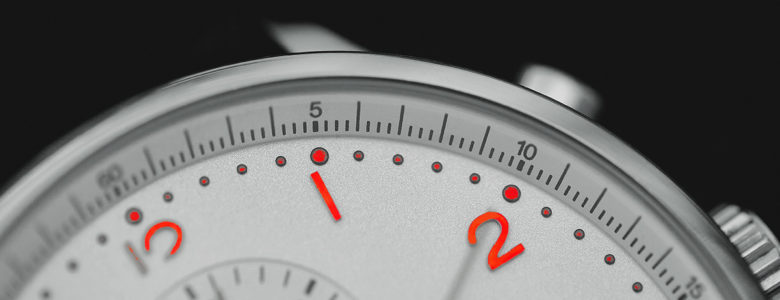
In Italy, as across Europe, now is not the time to wait and see
The recent general election in Italy reflected the continental collapse of support for political parties that seem to the electorate to represent the European establishment. This has been particularly punishing for social democratic parties, which appear to be concerned only with limiting the damage of free market globalisation on workers and their communities. In their stead, European voters are seeking political representation that will challenge the status quo – movements of the left, right and even the centre, which can portray themselves as radical and decisive.
The main winners of the Italian election, the catch-all Five Star Movement (M5S) and right-wing Lega, both campaigned on an anti-establishment, radical change platform. Yet the manifestos of both parties were in large parts vague and what sort of programme an M5S or Lega-led government would pursue is still unknown. Since the election, both parties have evolved their positions in efforts to bolster their chances of forming a government. As DiEM25 member, Lorenzo Marsili, has written, “the collapse of traditional parties is welcome and long overdue”, but it remains to be seen where this takes us.
Though M5S and Lega might massage their rhetoric for mass appeal, there is profound danger for Italy and Europe lurking in their proposals. Indeed, not all promises should be believed, not all roads lead to a fairer society, and not all new solutions are better solutions.
In Naples on March 10, DiEM25 launched Europe’s first transnational list. The agenda is workable and clear: a pan-European Green New Deal. DiEM25 will work to disobey a failed status quo and constructively rebuild a democratic Europeanist project. Our movement is participatory, democratic, radical and organised. Now is not the time to wait and see how government develops in Italy or elsewhere in Europe. Join a local DiEM25 collective today and build the progressive Europe of tomorrow.
Owen is a member of the DiEM25 movement, currently based in Beirut.